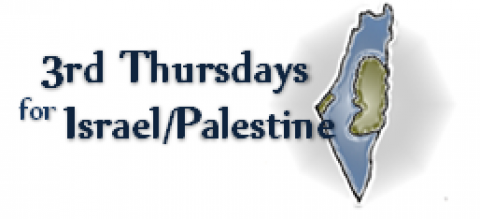
Organizations in the Faith Forum on Middle East Policy send out action alerts monthly, focusing on different issues so that members of Congress hear consistently that their constituents support a just and lasting resolution to the Palestinian and Israeli conflict.
Call for an end to all Israeli settlement activity in the occupied Palestinian territories.
Peace negotiations between Israelis and Palestinians are at a halt, but human rights violations associated with the Israeli occupation continue. Settlements, in particular, and the infrastructure that supports them, continue to take Palestinian land and obstruct daily life for Palestinians.
On the occasion of the talks’ collapse, the Israeli peace organization Peace Now published a report stating, “During the nine months of Secretary Kerry’s efforts in the region, the Israeli government promoted plans and tenders for at least 13,851 housing units in the settlements and East Jerusalem – an average of 50 units per day and 1,540 units per month.”
More than 500,000 Israelis live in settlements throughout the West Bank, including East Jerusalem – all of which are illegal under international law.
In addition to the relentless expansion of the settlements themselves, a complicated infrastructure system supports the settlement enterprise while constraining Palestinians’ freedom. A network of West Bank roads, for example, connects settlements to Israeli territory inside the 1967 borders. Although the roads are built on Palestinian land, their use by Palestinians is controlled and limited by Israel.
The road system is one of the more visible aspects of the Israeli occupation, but just as damaging for Palestinian life is the complicated process of West Bank land confiscation by the Israeli government. The Israeli human rights organization, B’tselem, explains, “Israel has used a complex legal and bureaucratic mechanism to take control of more than 50 percent of the land in the West Bank. This land was used mainly to establish settlements and to create reserves of land for the future expansion of the settlements.”
B’Tselem notes that the main mechanism for taking control of the land is to declare it “state land,” and Ha’aretz reports on this procedure: “A record amount of land – slightly more than half of it outside the West Bank separation barrier – was confirmed as state land last year, a critical step toward handing over the land to settlements so that more homes can be built on it.” A recent example of this procedure relates to the land around the Tent of Nations, a Palestinian farm and peace education center near Bethlehem. While the owners of the land have been fighting for years in the Israeli courts in order to keep their land, the government of Israel has now declared land in the valleys around the Tent of Nations to be “state land.” If the Israeli government succeeds in expropriating the designated land, the Tent of Nations will suffer even greater isolation. (Please see this alert with updated information about the Tent of Nations.)
Settler violence is another critical dimension of the settlement enterprise. Specifically, the culture of impunity in which settler violence takes place is part of the informal infrastructure supporting settlements. In its 2013 country-by-country report on terrorism, the U.S. State Department delineates reported terrorism throughout Israel, the West Bank and Gaza, including Palestinian attacks on Israelis and Israeli attacks on Palestinians. The report notes “price tag” attacks, defined as “property crimes and violent acts by extremist Jewish individuals and groups in retaliation for activity they deemed to be anti-settlement,” and states that, “Attacks by extremist Israeli settlers against Palestinian residents, property, and places of worship in the West Bank continued and were largely unprosecuted according to UN and NGO sources.”
In an article in The Jerusalem Post entitled, “Ex-Shin Bet chief: Israel does not intend to stop ‘price tag’ attacks,” Carmi Gillon, former chief of the Israeli security agency, Shin Bet, is quoted: “’We don’t see results because we don’t have the intention to…there’s no such thing as can’t – there’s don’t want to.’” In advance of the Pope’s visit to the region, Patriarch Fuad Twal of the Latin Patriarchate of Jerusalem issued a May 11 press release condemning price tag attacks and asking, among other questions, “How could it be that they don’t catch the perpetrators?”
In the absence of a viable peace process, it is more important than ever for advocates to speak out for a halt to all settlement activity. The growth of settlements and their attendant infrastructure cripples daily life for Palestinians and pushes any possible resolution further away while doing nothing to make Israelis or Palestinians more secure.
Use this link to contact your elected officials today to insist that Israel be held accountable for its support of the illegal settlement enterprise.
- Insist that settlement expansion stop along with the systems that support it including the segregated road system, the policy of land confiscation, and the culture of impunity in which settler violence takes place.
- Ask your elected leaders to work with the State Department to bring these important concerns to the attention of the Israeli government and to insist on action now.
